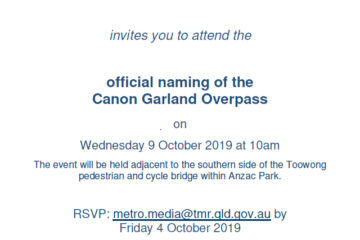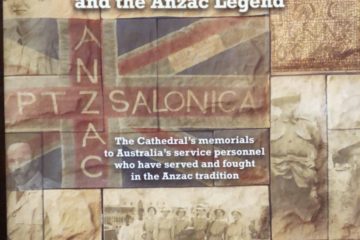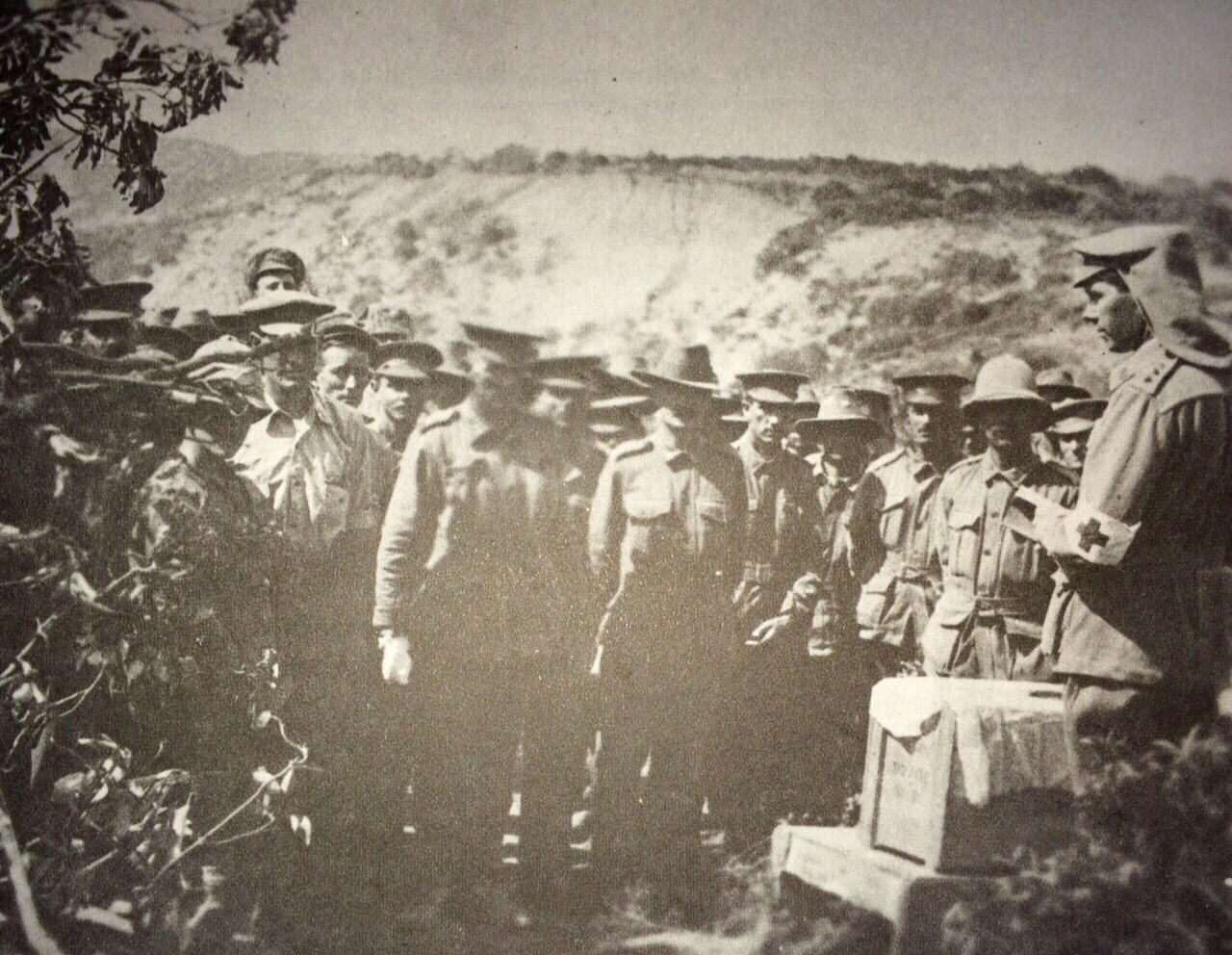ANZAC Day at Cairo
ANZAC Day
in Cairo.
AUSTRALIANS in Cairo were provided an opportunity of observing ANZAC Day much to their satisfaction.
A number of soldiers came down the line and were given board and lodging, free of cost, at the Australian Soldiers’ Club for three days.
On ANZAC morning [ 25 April 1919 ], a memorial Eucharist was celebrated at All Saints’ Church, the parish church for English people, which was kindly placed at the disposal of Australians by the Rev. C.T. Horan [ Charles Trevor Horan ], who has been a good friend to Australians from their first arrival in Egypt.
All Saints’ Church was crowded on this occasion, mostly by Australians, some New Zealanders being also present by invitation.
A large body of Australian sisters occupied the front seats on one side of the church.
The special High Commissioner, Sir Edmund Allenby [ Edmund Henry Hynman Allenby ], and Lady Allenby [ Adelaide Mabel Allenby, neé Chapman ] attended, as did also General Ryrie, M.H.R., [ Stanley Stewart Ryrie ] acting G.O.C., A.I.F. [ General Officer Commanding, Australian Imperial Force ] in Egypt.
When their Excellencies arrived, they were received at the church door by Canon Garland [ David John Garland ], General Ryrie, and the Rev. H.K. Gordon [ Hubert Keith Gordon ], S.C.F., A.I.F., who conducted them to their places in the front of the church, the congregation rising to receive His Majesty’s representative, Chopin’s “March Funebre” was played by the church organist, after which a litany, for the departed, “Lord of life and love, we pray, Grant them mercy in that day”, was sung in procession.
The service of the Holy Eucharist followed, according to The Book of Common Prayer, with the proper collect, epistle, and gospel for the burial service, from the first Prayer Book of Edward VI, Chaplain the Rev. H.K. Gordon, preached an eloquent sermon from the text, “These things ought to be had in remembrance”.
The collection was given to the Cairo Cathedral building fund, which is intended to be a memorial of those who died upon the Egyptian, Palestine and Syrian Fronts, and within, the walls of which all such names will be inscribed.
During the offertory the hymn sung was “O Lamb, of God, Redeemer blest, grant them eternal light and rest”.
The communion hymn was the favourite and beautiful “And now, O Father”, which was sung with much feeling, by the kneeling congregation, with the following verse, written for the first ANZAC Day in Queensland: —
“For those in paradise beyond our sight,
We pray Thee bless them with Thy tender love,
Shine on them radiance of eternal light,
Grant them the peace that comes from Thee above;
To living fountains Thou their footsteps lead,
And clothe them with the righteousness they need.”
After the blessing, the congregation came to attention to sing the National Anthem, and remained standing for “The Dead March in ‘Saul’.”
The “Last Post” was then sounded.
The cross-bearer was Sergeant Leslie Page [ Leslie William Page ], a Queenslander, as was also one of the servers at the altar, Corporal Albert Taylor [ Albert Edward Taylor ], of St. Francis’ College, Nundah, who won much praise from officers of the highest rank for the perseverance and value of his services during the war.
The other server was Trooper Morgan, from Tasmania, and the buglers were Corporals Patterson and Austin.
All these soldiers ministered at the altar in khaki, a custom with which Queensland soldiers are well familiar from their Enoggera camp days.
At midday a luncheon was served in the Australian Soldiers’ Club for men who had been on ANZAC, and 140 sat down to an abundant repast, under the direction of Miss Dudgeon, the manager of the Club, who was assisted by Miss Masonaghy, of the Australian Comforts Fund, and other ladies.
A gift of 4 ozs. [ 113 grams ] of tobacco and 20 cigarettes was made to each man.
At the same time a dinner was being given to 300 Australians camped close to Cairo.
The expenses of the day and of the three days’ hospitality was borne by the Church of England Australian Fund for Soldiers Overseas.
If the contributors could only have seen the reverence of the boys in church, their behaviour at the white-spread tables covered with roses, and heard the expression of gratitude of many of them, they would have been more than rewarded.
Canon Garland, speaking at the luncheon, told them that Australian friends were doing this as a proof that those in Egypt were not forgotten, and as an assurance that they would have a warm welcome on their return to their homes.
PICTURED ABOVE: Chaplain Lieutenant-Colonel Garland poses in the midst of some of the “boys” of the First A.I.F., probably at Jerusalem, circa 1918 or 1919.
– from page 9 of “The Telegraph” (Brisbane) of 14 June 1919.


